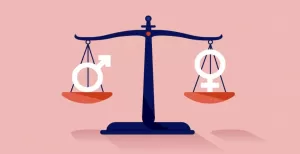In his 1940 essay “Dusk of Dawn,” the renowned scholar W.E.B. Du Bois reflected back to his early-career appointment, some 44 years prior, as a temporary instructor at the University of Pennsylvania — a time he described as coinciding with a clarifying vision he had on America’s “race problem.” At that time, near the dawn of the 20th century, Du Bois says he believed the primary impediment to enlightenment on racial issues was “stupidity” — and the cure was simple: “knowledge based on scientific investigation.”
But where the youthful Du Bois had faith in the power of science to overcome ignorance, the older Du Bois admitted that this faith was waning: “I regarded it as axiomatic that the world wanted to learn the truth and if the truth was sought with even approximate accuracy and painstaking devotion, the world would gladly support the effort,” he wrote. “This was, of course, but a young man’s idealism, not by any means false, but also never universally true.”
It still isn’t. We have known for decades, for example, that the bigoted nostrums of certain scientists, consumed by the conviction that “race” had some genesis in our cells, were wrong — and wildly so. In the grand sweep of time, the human species is simply too young for meaningful racial differences to have evolved. ″We all evolved in the last 100,000 years from the same small number of tribes that migrated out of Africa and colonized the world,” J. Craig Venter, then-head of the Celera Genomics Corporation in Rockville, Maryland, affirmed to The New York Times more than 20 years ago.
The American Anthropological Association had concluded as much two years earlier, in its 1998 statement on race: “The ‘racial’ worldview was invented to assign some groups to perpetual low status, while others were permitted access to privilege, power, and wealth,” the organization wrote. “The tragedy in the United States has been that the policies and practices stemming from this worldview succeeded all too well in constructing unequal populations among Europeans, Native Americans, and peoples of African descent. Given what we know about the capacity of normal humans to achieve and function within any culture, we conclude that present-day inequalities between so-called ‘racial’ groups are not consequences of their biological inheritance but products of historical and contemporary social, economic, educational, and political circumstances.”
And yet now, as ever, America remains heavily, inextricably, invested in the preservation of those racial taxonomies — a matrix of overt assumptions and covert expectations, subtle inferences and systemic inequities, that scientific progress alone has been unable to eradicate. We are, after all, visual animals, and some research has suggested that humans register another person’s race in about one-tenth of a second — before they notice gender. In that sense, our brains may well conjure and process racial biases before we ever have a chance to consciously counter them with higher thinking.
But we might still hope that the larger project of modern science — the accumulation of all that higher thinking — might do something to rectify the stupidity that Du Bois lamented. And yet for all we’ve learned about the evolutionary trajectory of genes, and of the overwhelming hereditary unity we share as a species, too many people still cling to the notion that superficial differences simply must belie more substantial differences in our bones.
Because people look different, they must be different, this noxious idea holds, and its grip has proven unshakable. It’s a belief system that has enjoyed centuries of currency, giving meaning to appearance based on who has power — with whiteness elevated to the top of the heap. It has survived whole revolutions in genetic science, and it still surfaces in our schools and in our state houses; it fuels attacks on the halls of Congress — broadcast on national TV — and it guns down shoppers in western New York. What hope do we have of defeating all of this with more science?
❈ ❈
The slave master, the statesman and abolitionist Frederick Douglass wrote in 1881, “had a direct interest in discrediting the personality of those he held as property. Every man who had a thousand dollars so invested had a thousand reasons for painting the Black man as fit only for slavery. Having made him the companion of horses and mules, he naturally sought to justify himself by assuming that the Negro was not much better than a mule.”
This, I think, is the rub. “Race” as a biological concept may not be real, but the racism it cultivated is very much so — and its persistence is not a function of failed pedagogy, but the tenacity with which certain groups guard their power. Race, after all, created whole hierarchies of humanity, doling out both privilege and oppression. It continues to allot and restrict. The atrocities committed in the service of maintaining racial hierarchies not only implicate ancestors, they indict current privileges, too.
And yet I see no indication that any real accounting, any true reckoning, is underway. Science may march forward, but in too many ways we remain mired in the bigotry of the past. And as much as I want to believe it possible, I am no more aware of a pedagogical path to racial enlightenment and racial egalitarianism than Du Bois was generations ago — at least not by way of science. We already know enough. The evidence is plain. Ignorance is not the impediment. Something else is in the way.
The failure to abandon the concept of race in this country is not rooted in a lack of knowledge. It is rooted in a persistent urge for dominance. And until we reckon with that urge, science is unlikely to deliver us.
(Charles M. Blow is an American journalist, commentator, and op-ed columnist for The New York Times, and a political analyst for MSNBC. He is a founding member of the Undark advisory board, and the author of the 2014 book “Fire Shut Up in My Bones.” Courtesy: Undark Magazine.)




